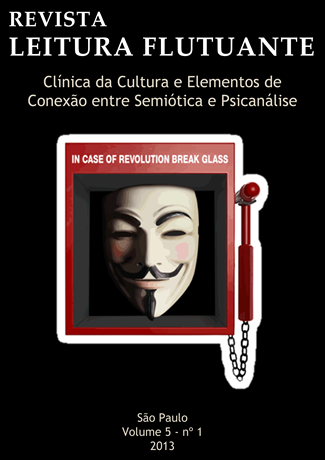Women Entrapped by the Past: The House in Paris and A World of Love by Elizabeth Bowen
Palabras clave:
the uncanny, domestic space, gendered space, memoryResumen
The uncanny atmosphere in E. Bowen’s novels and short stories is often related to the house and felt by its female inhabitants. Lilia in A World of Love, Karen in The House in Paris and other female characters experience the presence of something disturbing and frightening in the house, perceive the domestic space as strange, sinister and feel entrapped there.Relying on psychoanalytic literary criticism and G. Bachelard’s theory of space, I will argue that the uncanniness of the house originates in the women’s traumatic experience of the past. The haunted house appears to be a manifestation of “the crisis of the proper” dissolving the certainty about herself and the world. The house traditionally being associated with woman’s domain, symbolically representing the female body become the embodiment of her inner world with its uneasiness, anxieties and fears.Métricas
Citas
Bachelard, G. (1994) The Poetics of Space. Boston: Beacon Press.
Bowen, E. (1962) Afterthought. Pieces about Writing. London: Longmans.
Bowen, E. (1987) The House in Paris. London: Penguin Books.
Bowen, E. (2008) People, Places, Things. Edinburgh University Press.
Bowen, E. (1993) A World of Love. London: Penguin Twentieth Century Classics.
Bradbury, M. (2001) The Modern British Novel. London: Penguin Books.
Caruth, C. (1995) ‘Trauma and Experience: Introduction’. In Caruth, C., ed., Trauma: Explorations in Memory, Baltimore: John Hopkins University Press, 3-12.
Craig, P. (1986) Elizabeth Bowen. Penguin Books.
Foucault, M. (1967) Of Other Spaces, Heterotopias [Online], available: www.foucault.info/documents/heteroTopia/foucault.heteroTopia.en.html [Accessed 17 October 2012].
Freud, S. (1920) A General Introduction to Psychoanalysis. New York: Boni and Liveright [Online], available: www.bartleby.com/283/ [Accessed 4 January 2013].
Freud, S. (1997) Selected Writings. New York: Book-of-the-Month Club.
Gillis, J. R. (1985) For Better, for Worse: British Marriages, 1600 to the Present. Oxford University Press.
Holdsworth, A. (1988) Out of the Doll’s House: The Story of Women in the Twentieth Century. BBC Books.
Jentsch, E. (2008) ‘On the Psychology of the Uncanny’. In Collins, J., and Jervis J., eds., Uncanny Modernity: Cultural Theories, Modern Anxieties. London: Palgrave Macmillan, 216-227.
Kershner, R. B. (1997) The Twentieth-Century Novel: An Introduction. Boston, New York: Bedford Books.
Kristeva, J. (1993) Poust and the Sense of Time. New York: Columbia University Press.
Millet, K. (1973) ‘The Debate over Women: Ruskin vs. Mill. In Vicinus, M., ed., Suffer and Be Still: Women in the Victorian Age. Indiana University Press.
Palmer, P. (2012) The Queer Uncanny. Cardiff: University of Wales Press.
Royle, N. (2003) The Uncanny. Manchester University Press.
Stewart, V. (2006) Narratives of Memory. British Writing of the 1940s. London: Palgrave Macmillan.
Trigg, D. (2012) The Memory of Place: A Phenomenology of the Uncanny. Ohio University Press.
Whitehead, A. (2004) Trauma Fiction. Edinburgh University Press.
Zweiniger-Bargielowska, I. (2001) Women in twentieth-century Britain. Longman.
Descargas
Publicado
Cómo citar
Número
Sección
Licencia
Proposta de Política para Periódicos de Acesso Livre
Autores que publicam nesta revista concordam com os seguintes termos:
- Autores mantém os direitos autorais e concedem à revista o direito de primeira publicação, com o trabalho simultaneamente licenciado sob a Licença Creative Commons Attribution que permite o compartilhamento do trabalho com reconhecimento da autoria e publicação inicial nesta revista.
- Autores têm autorização para assumir contratos adicionais separadamente, para distribuição não-exclusiva da versão do trabalho publicada nesta revista (ex.: publicar em repositório institucional ou como capítulo de livro), com reconhecimento de autoria e publicação inicial nesta revista.
- Autores têm permissão e são estimulados a publicar e distribuir seu trabalho online (ex.: em repositórios institucionais ou na sua página pessoal) a qualquer ponto antes ou durante o processo editorial, já que isso pode gerar alterações produtivas, bem como aumentar o impacto e a citação do trabalho publicado (Veja O Efeito do Acesso Livre).


